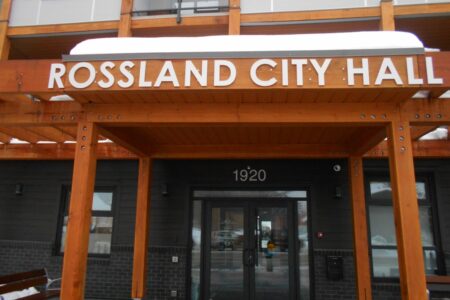Balfour residents turn back on nearly $3 million in funds
Balfour residents worried about smart water meters in their homes might end up costing local taxpayers a lot of money.
A handful of residents voted against a proposal for the Regional District of Central Kootenay to borrow nearly $600,000 to upgrade the area’s creaking water system.
By rejecting the proposal, they’ve turned their back on nearly $3 million in matching federal and provincial funds to pay for the project.
“I think we should have done a referendum, because I believe a majority of residents believed in the value of the project we were proposing,” said Uli Wolf, the RDCK’s General Manager of Environmental Services. “Time doesn’t allow us to go back now.”
The RDCK asked voters in the Balfour area to approve much-needed improvements to the area’s water system. The money would go to replace the local reservoir, install universal metering, upgrade the power system, replace a pump station, and other improvements.
The project had been granted $2.8 million by federal and provincial programs to cover 83 per cent of the cost of the project. That left Balfour residents to cover 17 per cent, or about $583,000.
But the project is under a tight timeline, and has to be completed by March 2018. Wolf says that’s why the RDCK decided to go for the fastest taxpayer approval process- the ‘Alternative Approval Process’, or AAP.
However, the AAP only needs 10 per cent of the people in the area- 33 out of 330 eligible voters, in this case- to reject the proposal. The RDCK stopped counting at 45 ‘no’ ballots.
“One of the largest concerns was the introduction of smart meters to monitor water use,” says Wolf. “People didn’t want that.”
Besides metering, he says citizens told him they thought other parts of the project were non-essential, like upgrading power systems- and that’s why they voted against it.
But he says that leaves all taxpayers in the area on the hook for very expensive parts of the project that must be done soon.
“The most urgent part of the project was replacement of the reservoir,” says Wolf. “It’s not structurally sound. It will have to be replaced in the next five years. And it has to be funded one way or the other.”
But instead of only paying 17 per cent of the bill, Balfour taxpayers are now on the hook for all of it.
“If we’re not allowed to borrow money to match the government grants, the reservoir will have to be paid 100 per cent by residents,” he says.
But the reservoir isn’t the only issue the water project was meant to solve. The water intake system and treatment system are working at full capacity in peak-usage times, and Wolf says water restrictions are likely in the future.
It’s one of the reasons the RDCK included the unpopular metering proposal in the project, says Wolf.
“Some form of commitment for water conservation was important for getting approval for the project,” he says. “Metering generally results in a 10-15 per cent reduction in water use.”
But that proved to be the project’s undoing, and Wolf says they’re not sure what will happen next. He’s approached the senior levels of government and will hear next week if they can re-work the project and keep the funding. But he’s not optimistic.
“There are people lining up at their doors, saying ‘if anyone drops out, let me be next to receive the funds’,” says Wolf. “Chances are not good.”
























